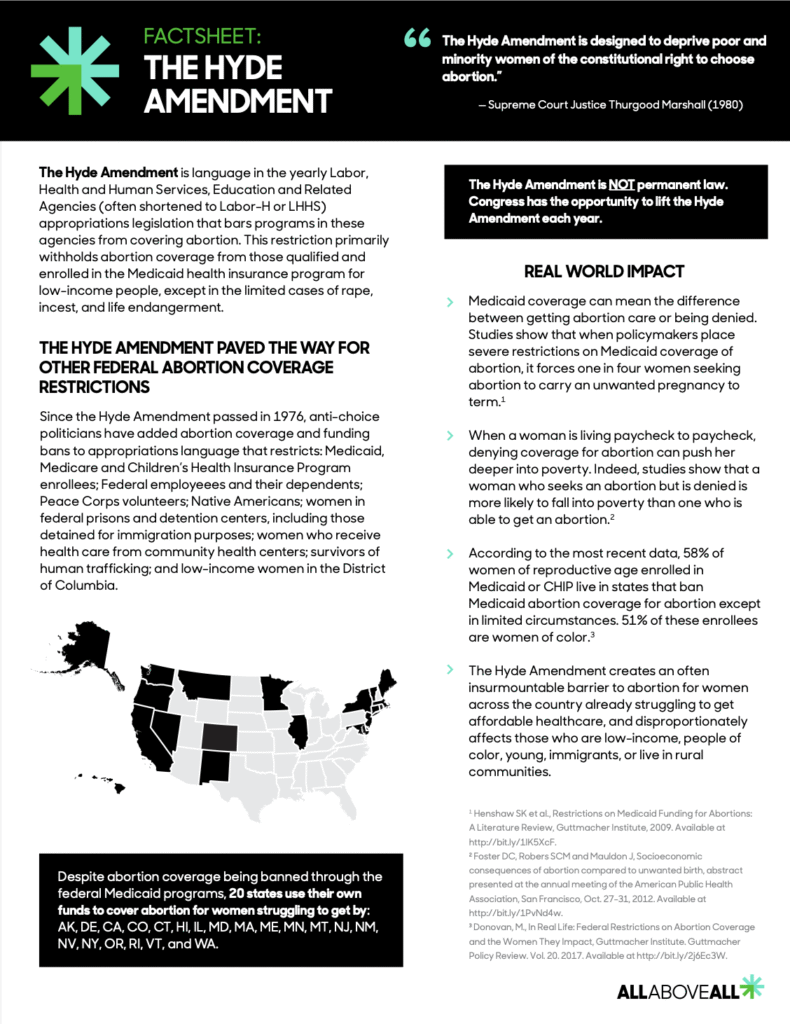The Hyde Amendment is language in the yearly Labor, Health and Human Services, Education and Related Agencies (often shortened to Labor-H or LHHS) appropriations legislation that bars programs in these agencies from covering abortion. This restriction primarily withholds abortion coverage from those qualified and enrolled in the Medicaid health insurance program for low-income people, except in the limited cases of rape, incest, and life endangerment.
The Hyde Amendment Paved the Way for Other Federal Abortion Coverage Restrictions
Since the Hyde Amendment passed in 1976, anti-choice politicians have added abortion coverage and funding bans to appropriations language that restricts: Medicaid, Medicare and Children’s Health Insurance Program enrollees; Federal employeees and their dependents; Peace Corps volunteers; Native Americans; women in federal prisons and detention centers, including those detained for immigration purposes; women who receive health care from community health centers; survivors of human trafficking; and low-income women in the District of Columbia.

